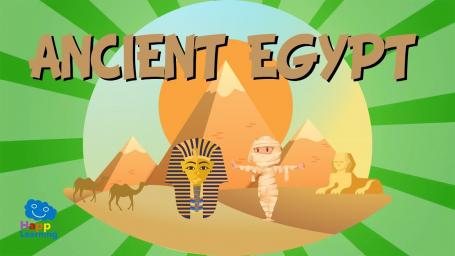Egypt
Egypt is a country in Africa. It is at the north part of the continent. The north side of Egypt borders the Mediterranean. East of it is the Red Sea, Sudan to the south and Libya to the west. Other countries are on its other sides. It is in a very special location. It is a place that is close to Asia.
The capital of Egypt is Cairo. That is a really great city. It has been an important city for a long time. It is the largest city in Africa. If you visit that city, you will find a very modern place. You will see many cars. You will see many businesses, schools, and homes.
About 82 million people live in Egypt. They have a rich history. Long ago, Egyptians made this the greatest place in the world. They built pyramids. These very smart people invented ways to farm.
Long ago, Egyptians were wonderful leaders. They built great buildings. They set up schools. They invented a special way of writing. That was called hieroglyphics. They looked like pictures instead of alphabet letters.
You will still see hieroglyphics in Egypt today. But they are not used to read and write. They are a part of history. Egypt has a long history. It has been a leader for a long time. If you read Egypt’s history, you will know how great this country has been.
Today most Egyptians live near the banks of the Nile River. This is where the only good land to farm is. It’s a great place to live. There are other parts that are difficult to live—they are deserts. So not many people live there.
About half of Egypt's residents live in cities. Those big cities are in the area of the Nile River. If you go to Cairo, the biggest city, you will find millions of people.
Egypt has had some problems. There have been wars. There have been problems of poverty. Poor people in the cities need jobs. They need homes. Egypt is working to solve those problems.
Egypt is making its schools better. The school leaders are making plans to help students learn more. They are planning ways to help parents help their children learn more, too.
Egypt is a great country. It has a wonderful history. It will have a great future because people are working hard. They are working together to get more jobs and homes.
